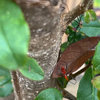Is neem oil superior to insecticial soaps and horticultural oils?
username_5
18 years ago
Featured Answer
Sort by:Oldest
Comments (11)
Kimmsr
18 years agorpellegrini
18 years agoRelated Professionals
Beachwood Landscape Architects & Landscape Designers · Grand Haven Landscape Architects & Landscape Designers · Brookside Landscape Contractors · Annandale Landscape Contractors · Ashburn Landscape Contractors · Bowie Landscape Contractors · Danvers Landscape Contractors · Santa Maria Landscape Contractors · Tehachapi Landscape Contractors · Sun Valley Landscape Contractors · North Hills Landscape Contractors · Algonquin Decks, Patios & Outdoor Enclosures · Philadelphia Decks, Patios & Outdoor Enclosures · Racine Decks, Patios & Outdoor Enclosures · Winchester Center Stone, Pavers & ConcreteOrganic_johnny
18 years agousername_5
18 years agousername_5
18 years agodianamagic
18 years agogardengal48 (PNW Z8/9)
18 years agoOrganic_johnny
18 years agojsfink
18 years agoRebecca May
3 years ago
Related Stories

WINTER GARDENINGPruning Secrets for Exquisite Roses
Encourage gorgeous blooms year after year with this time-tested advice on how to prune your rosebush in winter for health and shape
Full Story
GARDENING AND LANDSCAPINGBid Bad Garden Bugs Goodbye and Usher In the Good
Give ants their marching orders and send mosquitoes moseying, while creating a garden that draws pollinators and helpful eaters
Full Story








gardengal48 (PNW Z8/9)